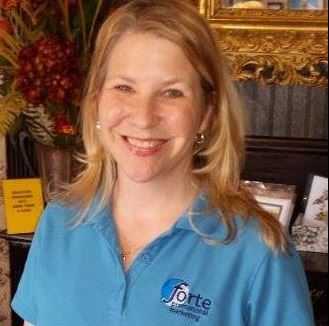
Did you know that every year, severe sepsis strikes more than a million Americans? Sepsis, a form of blood poisoning, is one of the easiest illnesses to contract, and one of the hardest to recover from. In fact, almost 500,000 people will die from sepsis this year alone. That’s more than the number of U.S. deaths from prostate cancer, breast cancer and AIDS combined.
So, why am I sharing these alarming statistics with you? Because I am a survivor. My name is Karen Thieken; wife of 22 years to Paul Thieken, and mother to my beautiful daughters Katie, 11, and Colleen, 8. And four years ago my life and their lives, changed forever. On April 15th, 2012, my husband called 911, I was rushed in an ambulance to the hospital and admitted to the ICU. Little did I know that I was dying from a massive bacterial infection that had led to septic shock.
The diagnosis — a systemic group A strep infection. In a matter of 12 hours, I went from helping my husband Paul with yard work, to looking like the Michelin man, my body swelling from the 40 pounds of fluid it had started to retain. I went into septic shock and my liver, kidneys, lungs and heart started shutting down, one by one. The doctors put me into a medically induced coma, placed me on a ventilator, and began the process of providing life-saving blood transfusions, followed by dialysis for my failing kidneys. I was comatose for 11 days.
When I finally awakened almost two weeks later, I could not walk or talk. I was unable to feed or bathe myself. My muscles were atrophied and I had lost hearing in my right ear. I started the long rehabilitation process, learning to complete even the most basic efforts all over again. It was a very slow, frustrating process. I experienced chronic pain, fatigue and loss of cognitive function. Unfortunately, my bout with sepsis resulted in a traumatic brain injury. To this day, I still struggle with short term memory loss and the inability to focus or concentrate for long periods of time, preventing me from working in an office environment any longer and affecting my ability to keep my dream job. The simplest efforts, like driving to the store without getting lost on the way, became a challenge.
This is not uncommon for severe sepsis cases. In fact, many sepsis survivors experience cognitive problems like memory loss, inability to concentrate, and difficulty performing mental tasks that were easy before sepsis. And unfortunately, data shows that the older the patient is when they contract sepsis, the higher the risk of memory problems afterwards.
Additionally, due to the challenges many sepsis survivors face, they often suffer from depression. In fact, within a year of being hospitalized, I was diagnosed with PTSD and hospitalized for major depression, alcohol and drug abuse.
Every day is still a struggle. My husband and I have both had to change our professions to allow us to work from home, so that he can help me with my daily activities, as well as help me run a promotional marketing business. The financial burden of the health care costs, as well as loss of income due to my inability to work in a 9-5 office job has been heavy. It is still taking a major toll on our immediate family.
Since my hospital stay, we have incurred over $50,000 dollars in debt, using our credit cards to pay for our basic family needs. We almost lost our house, a threat that still lingers today. I applied for social security disability on November 15, 2013 and have been denied several times. I am appealing the decision and am hopeful that disability coverage will be provided so that our family does not have to file for bankruptcy. But my appeal for social security will take time. Time I don’t have.
On a logical level, I realize that our family’s hardships are not my fault. I have an unbelievable amount of guilt because a random bacterial infection completely changed the course of our lives. I didn’t plan on getting sick. But the reality is that I am not alone, thousands of sepsis survivors are suffering with the daily challenges and economic burdens that sepsis creates. Make sure you are armed with knowledge that might save a family member’s life one day.
By Karen Thieken

